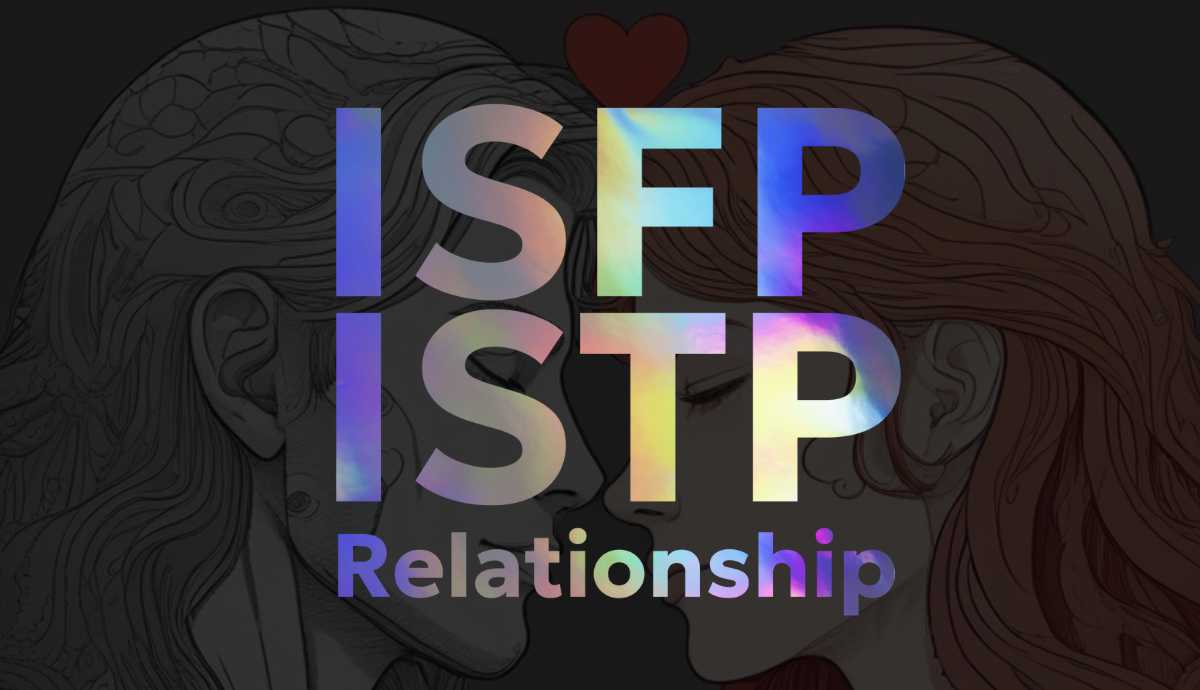If you are an INTJ, it means that you are an introvert who is analytical, structured and very strategic. You go about life in a very purposeful and deliberate way. You are someone who thinks ahead and always has a plan for what you intend to do. Surveys show that the average INTJ plans their life out a minimum of 33 years into the future.
Recreation and leisure have their place, but these are not things you pursue for their own sake. Rather, you are driven more by a pursuit for what you consider to be meaningful and important. You therefore, prioritize objectives related to achievement and stability.
You have high standards of competence both for yourself and others. You are goal-driven and seek to implement ideas and carry them out to fruition. People who classify as the INTJ personality type are said to have a clear vision of future possibilities and a strong drive to put things in order.
As someone who values efficiency, you are inclined to utilize methods and systems that maximize productivity and minimize waste. You are someone who is not short-sighted in your perspective, but rather long range in the scope of your considerations. You resist impulse decisions and prefer to be more strategic, relying on any number of plans and contingency plans you may have prepared. Still, you have a strong sense of what you like and don’t like and this can make it easy for you to decide things quickly.
Determination and persistence are among your greatest strengths. You possess an ability to bunker down and get things done. You are studious and able to focus for extended lengths of time on mentally intensive work. Moreover, as an INTJ, you understand how to manage your time well, and this skill contributes to the air of professionalism that you bring to the workplace.
People of this type are rather firm and decisive and quite comfortable with giving direct instructions to others. In contrast to the INTP, who is more inclined to make suggestions, or offer reasons for why something should be done, the INTJ is more apt to simply tell others what to do in rather forthright and blunt terms. They tend to be very assured in their thinking which can make them seem intellectually conceited.
These individuals tend to be quite self confident. Although they are introverted, they enjoy getting into interesting and stimulating discussions with others. It’s the small talk and shallow and sometimes obligatory social exchanges that they prefer to avoid. Nevertheless, INTJs can, on the outside, appear quite comfortable and confident even in social situations that make them anxious.
Their demeanor tends to be reserved and not overly expressive. They prefer to process emotional issues on their own through private reflection and careful analysis. INTJs try to maintain a certain detachment from their personal feelings which is why they can appear so rational, unflappable and cool-headed.
Despite this, people of this personality type do have a sense of values and ethics that influence their judgement apart from the logic of their Te-driven objectives. While, they can appear insensitive, cold and aloof at times, there is an element of idealism that underlies their cerebral exterior. While they may not be the most emotionally supportive, the INTJ can be an excellent provider to their families and loved ones and will likely take a lot of interest in working hard to give their children the best and brightest future possible.
While INTJs have an affinity for order and structure, they are not necessarily inclined to blindly fall in line or agree with the rules and regulations that they are subjected to. They are critical thinkers who discriminate for themselves what makes sense and what does not. Furthermore, these types have a penchant for identifying flaws in systems and ways in which they can be improved. INTJs prefer flexible guidelines that can be applied intelligently and dislike bureaucratic rules and policies that are too rigid and traditional.
As the “Architect” MB type, you also tend to be quite judgmental. You seek resolution and are willing to draw conclusions where the INTP would prefer to remain open to more possibilities. Your instinct is to narrow things down quickly on the basis of logic and efficiency and whatever other criteria you feel is pertinent. Once you reach a conclusion, you are not inclined to doubt or continue questioning your beliefs the way INTPs tend to do.
INTJs are often avid learners with a knack for research. They can spend a copious amount of time reading and consuming information however they can get it. Moreover, they love to analyze and read between the lines of the information and data they are taking in. They are good at picking up on patterns and forming a picture of where things could be headed for better or worse.
This personality type doesn’t care much for social conventions and niceties. They feel little need to be overly polite or inauthentic in order to get people to like them. As an INTJ, you are quite content being in your own company and require little to no attention or external validation from other people. This, however, is not to say that INTJs do not value relationships. They get along well with people who share their interest in meaningful and mentally stimulating discussion but also understand their need for space and alone time.
These types are not the most affectionate companions but they are also not the most controlling either. As a parent, you encourage your children to think for themselves, learn from their experiences and hopefully equip them with the tools to make good decisions. INTJs sometimes turn to their friends and loved ones for advice but in doing so, they are not looking for a shoulder to cry on or someone to give them feel-good reassurances. They desire practical feedback and ideas that can be used or otherwise help them make the right decisions.
By the same measure, INTJs are not inclined to offer emotional coddling to others. They can however appreciate when others come to them for advice because advice is something they love to give. Solving relationship problems is something that INTJ may enjoy trying to figure out much like any other puzzle. Among the things that INTJs may need to work on to improve their relations with others is developing more sensitivity and empathy for what others are or might be going through. They may also want to curb some of their arrogant tendencies, try to hear people out fully and not instantly dismiss the opinions of people they perceive as less intelligent.
Want to know your astrology placements? You can generate your astrology chart here with our free birth chart generator tool.
INTJ Strengths:
- Strategic Thinkers: INTJs are adept at developing long-term plans and strategies, often seeing the bigger picture.
- Analytical Prowess: They excel in analyzing complex problems and finding efficient solutions.
- Forward-Thinking: INTJs are future-oriented and can anticipate potential challenges and opportunities.
- Independent: They value autonomy and prefer to work independently, relying on their own judgment.
- Decisive: INTJs are decisive and are often able to make tough decisions with clarity and conviction.
- Goal-Oriented: They set clear goals and are determined to achieve them, often with a focused and persistent approach.
- Logical Reasoning: INTJs prioritize logic and reason in decision-making, aiming for objective and rational outcomes.
- Efficient Planners: They are skilled at organizing and planning, ensuring that resources are used optimally.
- Self-Confident: INTJs are confident in their abilities and often pursue their goals with a sense of assurance.
- Visionary Leaders: They can inspire and lead others with their vision and strategic thinking.
INTJ Weaknesses:
- Perfectionism: INTJs may have high standards and struggle when faced with the imperfections inherent in many situations.
- Impatience: They may become frustrated with inefficiency or when others fail to grasp their ideas quickly.
- Insensitive Communication: INTJs may prioritize logic over empathy, leading to communication that can be perceived as blunt or insensitive.
- Tendency to Overlook Emotions: They might neglect the emotional aspects of a situation, focusing more on facts and logic.
- Difficulty Delegating: Due to their desire for control, INTJs may find it challenging to delegate tasks to others.
- Social Awkwardness: They may struggle with small talk or social niceties, finding social interactions draining.
- Resistance to Change: While forward-thinking, INTJs may resist changes to their plans if they believe it disrupts their strategic vision.
- Isolationist Tendencies: INTJs may isolate themselves when working on projects, inadvertently excluding others.
- Intolerance for Inefficiency: They may become frustrated with systems or individuals they perceive as inefficient or incompetent.
- Risk Aversion: In certain situations, INTJs may be risk-averse, preferring to stick to tried-and-true methods.
Famous INTJ People:
- Elon Musk – Entrepreneur and CEO of SpaceX and Tesla, Inc.
- Stephen Hawking – Theoretical Physicist and Cosmologist
- Mark Zuckerberg – Co-Founder and CEO of Facebook
- Ayn Rand – Philosopher and Author
- Niels Bohr – Physicist and Nobel Laureate
- Arnold Schwarzenegger – Actor and Former Governor of California
- Christopher Nolan – Film Director and Screenwriter
- Hillary Clinton – Former U.S. Secretary of State and Presidential Candidate
- Isaac Asimov – Author and Biochemist
Other MBTI Types:
- INTP Personality Type
- INTJ Personality Type
- ENTP Personality Type
- ENTJ Personality Type
- INFP Personality Type
- INFJ Personality Type
- ENFP Personality Type
- ENFJ Personality Type
- ISTJ Personality Type
- ISFJ Personality Type
- ESTJ Personality Type
- ESFJ Personality Type
- ISFP Personality Type
- ISTP Personality Type
- ESTP Personality Type
- ESFP Personality Type
related posts:
- INTJ Weaknesses: 7 Struggles of Being INTJ
- 35 Signs That You have An INTJ Personality
- 6 Careers INTJs Should Probably Avoid
- 6 High Paying Careers For INTJs
- INTJ and ENTP Relationship Compatibility
- INTJ Relationships (With Each Myers Briggs Type)
- 12 Shades of INTJ: MBTI & the Zodiac
- INTP vs INTJ Comparison: 3 Key Differences Between the Logician and the Architect
- 7 Signs an INTJ Likes You
- INTJ Strengths: 7 Areas Where INTJs Dominate.
- INTJ Shadow: The Dark Side of INTJ
- American Presidents Ranked By Zodiac Sign - January 20, 2025
- ESTP and ESFP in love: 6 Dynamics of Their Relationship - September 4, 2024
- ISFP and ISTP in love: 5 Dynamics of their Relationship. - August 28, 2024








